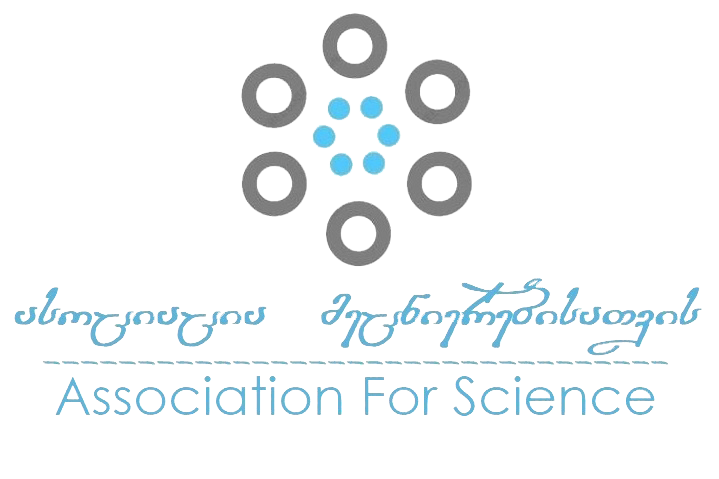მასწავლებლის მომზადების საგანმანათლებლო პროგრამის სტუდენტთა აკადემიურ მიღწევებზე მოქმედი ფაქტორები
DOI:
https://doi.org/10.52340/sou.2023.21.36საკვანძო სიტყვები:
მასწავლებლის მომზადების საგანმანათლებლო პროგრამა, სტუდენტები, აკადემიური მიღწევები, სოციალური ქსელი (Facebook), აკადემიური მიღწევა, მოქმედი ფაქტორები, ონლაინ ჯგუფებიანოტაცია
სტატია ეხება პანდემიურ და პოსტპანდემიურ პერიოდში სოხუმის სახელმწიფო უნივერსიტეტის მასწავლებლის მომზადების საგანმანათლებლო პროგრამის სტუდენტთა აკადემიურ მიღწევებზე მოქმედი ფაქტორების კვლევას. კერძოდ, მათ აკადემიურ შედეგებზე საგნობრივი სოციალური ქსელის (Facebook) როლის შესწავლას. შესწავლილ იქნა ბოლო სამი სასწავლო წლის ცხრა ქეისი თითოეულ ქეისად განვიხილეთ ერთი საგნობრივი ჯგუფი და ქეისების შესწავლისას უპირატესობა მივანიჭეთ კორვენგენციულ მიდგომას რაც რაოდენობრივი და თვისებრივი კვლევის ინსტრუმენტების გამოყენების შესაძლებლობას იძლვა და მონაცემთა ანალიზს უფრო სიღრმისეულს ხდის.კვლევა მოიცავს სხვადასხვა ასპექტს, როგორიცაა აკადემიური მოსწრება, ცოდნის მიღების პროცესის ხელმისაწვდომობა და პედაგოგიური უნარების განვითარება. კვლევით გადავამოწმეთ ჰიპოთეზა, რომელიც ამტკიცებს, რომ სასწავლო პორტალები და დახურული ონლაინჯგუფები მნიშვნელოვნად უწყობენ ხელს სტუდენტების აკადემიური მიღწევების გაუმჯობესებას, სწავლის ხელმისაწვდომობას, კოლაბორაციულ სწავლებას და გრძელვადიან პერსპექტივაში აუმჯობესებს პედაგოგიურ პრაქტიკას.
კვლევის შედეგები აჩვენებს, რომ დახურული ონლაინჯგუფების გამოყე-ნება ზრდის სტუდენტების ჩართულობასა და აქტიურობას სასწავლო პროცესში. რაოდენობრივი ანალიზი მტკიცედ ადასტურებს კავშირს სტუდენტების აქტიურობასა და აკადემიურ შედეგებს შორის, რაც სტატისტიკურად მნიშვნელოვანი კორელაციით (r = 0.79) დადასტურდა და თვისებრივი კვლევით ამ კორელაციის ახსნა მოხდა.
კვლევის დასკვნა მიუთითებს, რომ სოხუმის სახელმწიფო უნივერსიტეტის მასწავლებლის მომზადების საგანმანათლებლო პროგრამის სტუდენტებისთვის დახურული სოციალური ონლაინჯგუფების გამოყენება მნიშვნელოვნად აუმჯობესებს აკადემიურ მოსწრებას, ცოდნის მიღების პროცესის ხელმისაწვდომობას და პედაგოგიური უნარების განვითარებას.
წყაროები
Topping, K. J. (2018). The effectiveness of collaborative learning for undergraduate students: A meta-analysis. Review of Educational Research, 68(2), 249-276.
Kumar, V., & Vig, R. (2017). The impact of e-learning on student performance: A case study of university students in Pakistan. International Journal of Information and Education Technology, 7(9), 702-707.
Garrison, D. R., & Anderson, T. (2003). E-Learning in the 21st Century: A Frame-work for Research and Practice. Routledge.
Hrastinski, S. (2008). Asynchronous and synchronous e-learning. Educause Quarterly, 31(4), 51-55.
Bates, A. W., & Sangra, A. (2011). Managing Technology in Higher Education: Strategies for Transforming Teaching and Learning. Jossey-Bass.
Salmon, G. (2002). E-Moderating: The Key to Teaching and Learning Online. Kogan Page.
Dhawan, S. (2020). Online Learning: A Panacea in the Time of COVID-19 Crisis. Journal of Educational Technology Systems, 49(1), 5-22.
Hodges, C., Moore, S., Lockee, B., Trust, T., & Bond, A. (2020). The Difference Between Emergency Remote Teaching and Online Learning. Educause Review.
Jandrić, P., Hayes, D., Truelove, I., Levinson, P., Mayo, P., Ryberg, T., ... & Hayes, S. (2020). Teaching in the Age of Covid-19. Postdigital Science and Education, 2, 1069-1230.
Bates, T. (2020). Crises, Change, and Online Learning. Online Learning and Distance Education Resources.
Li, C., & Lalani, F. (2020). The COVID-19 Pandemic has Changed Education Forever. This is How. World Economic Forum.
Bozkurt, A., Jung, I., Xiao, J., Vladimirschi, V., Schuwer, R., Egorov, G., ... & Paskevicius, M. (2020). A Global Outlook to the Interruption of Education Due to COVID-19 Pandemic: Navigating in a Time of Uncertainty and Crisis. Asian Journal of Distance Education, 15(1), 1-126.



